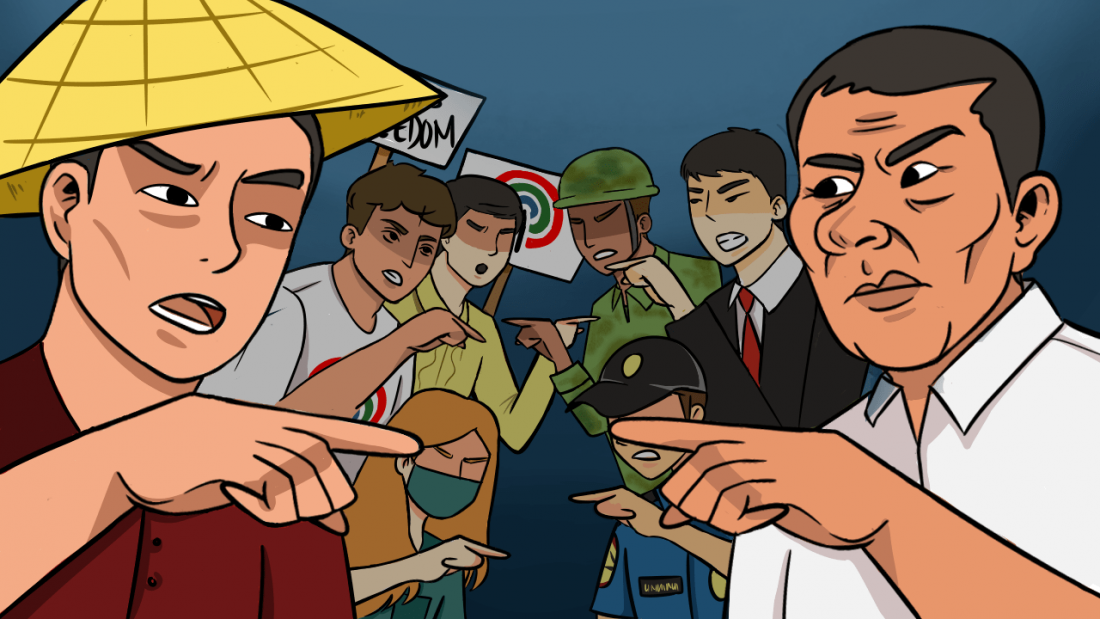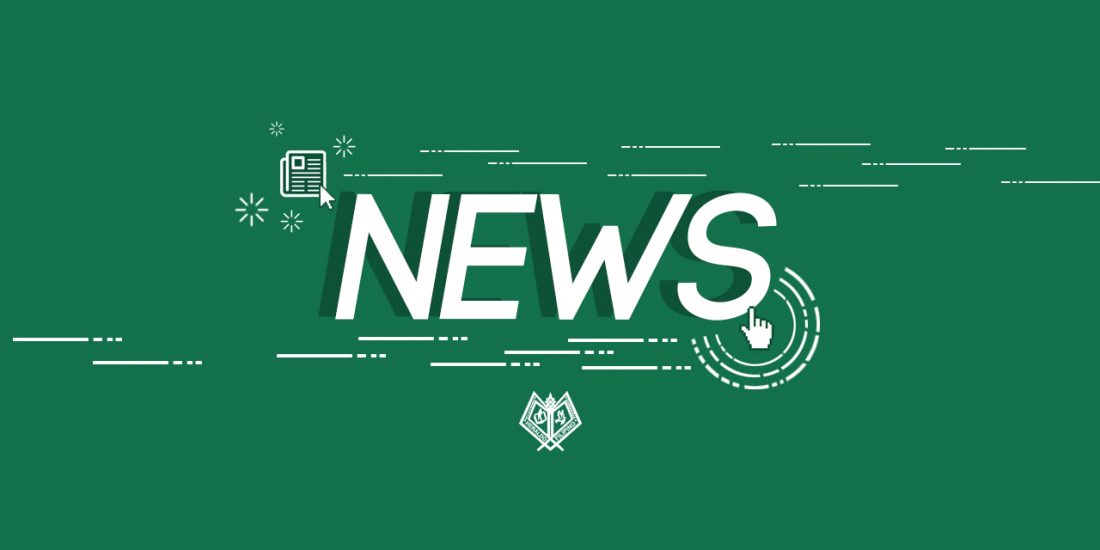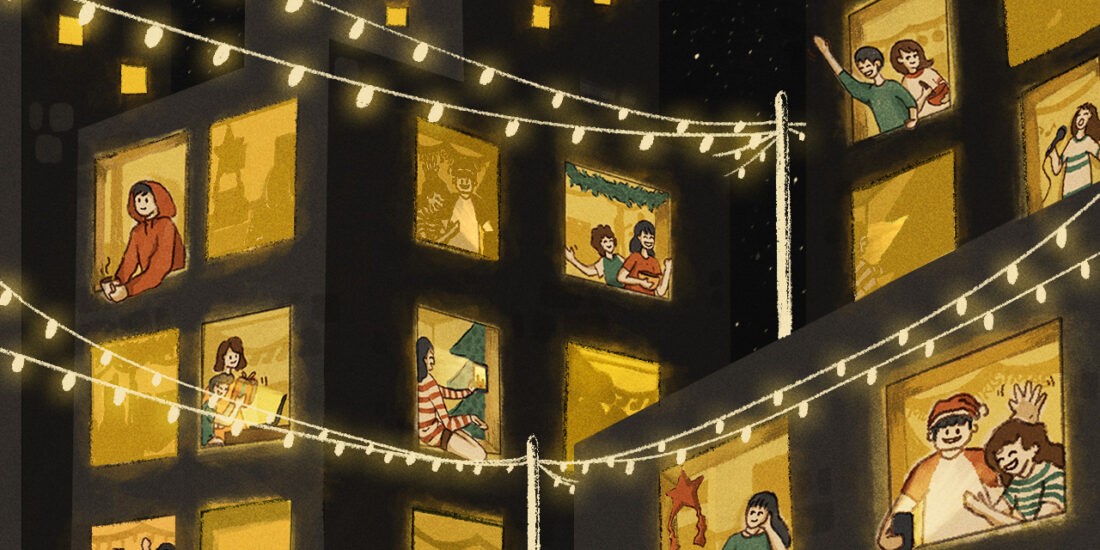In this war on accountability, silence is sin
The war on COVID-19, like the war on drugs, on press freedom, and others the Philippine government has waged, are all wars on accountability.
That free expression and dissent can be criminalized with particular hostility is not only an irony for the imbalance of power within the rungs of authorities. It is a threat that puts us in a very dangerous position as a democratic country. Especially in a time of crisis, and in a time when the government is given special powers and billions of taxpayer and borrowed money, the erosion of checks and balances should not escape us—even if we are preoccupied by the pandemic. Us, the citizens, have that power. The only thing that’s stopping many of us is the wrong idea of loyalty and obedience.
We should realize that loyalty is not what drives our democracy. Because blind loyalty to a person is a chain, and democracy means freedom.
If you think about it, gone are the days where the top knows the best. Inside our homes, as commoners, us on the ground are key players in asserting the needs of communities from the grassroots. This is why dissent matters and this is why we should change the way we think about it.
Plain as day, we witnessed how the pandemic magnified existing gaps in our society. But more than this, we also saw people’s despair for change—and on the other hand, people’s illusion of order and progress. For some, stagnance is the rule of peace, and as far as opinion is concerned, scrutinizing the government does more harm than good. This issue, specifically, the “ano bang ambag mo?” conversation is already fought long and hard: we as citizens, as taxpayers, and as people, have both the right and capacity for free exercise of sound conscience. Yet, every now and then, we still see people antagonize others who push for change. Among Filipinos, aside from class struggle, stance on politics is the heaviest wedge driven between us.
At this point, the roadblock to safeguarding our civil liberties is no longer our contribution as entitlement. But altogether, fanaticism and the notion that we can’t hold our leaders accountable, because they’re our leaders. But that’s the point, they are our leaders, and they should be accountable for everything that they do. It’s true, no government is perfect, and no one asks for that. But the question of whether they did enough for us not to reach this point, the question of whether they are doing enough to not go any farther down this road, and all the little questions of wheres and whys in between, are what keep us moving forward.
Any act of resistance is not an undoing of progress, but ultimately, a means for realizing potential and promoting honesty.
However, somehow, it can be hard to disabuse Filipinos of this notion. Dissent can entail images of disagreement, and we don’t want that in any scenario, especially now that the crisis we face is already bad enough. Influencing policies, in other simpler forms like posting on social media, criticizing President Rodrigo Duterte, his agencies, or his decisions, all look like betrayal to the Philippines. What they do not realize is that any act of resistance is not an undoing of progress, but ultimately, a means for realizing potential and promoting honesty.
One way to overturn this is by not backing off discourse and waiting for others to wake up through enlightenment and education. Perhaps, save for the trolls, don’t unfriend that relative or old schoolmate, and try a purposeful approach to achieving progress, knowing that there is no linear path to clarity. We should value our networks. After all, we can’t achieve change on our own.
If there are issues that have continually divided us, among the biggest are war on drugs, COVID-19 response, and ABS-CBN shutdown. They are all complex discourse on public welfare, law, and justice but they are all about accountability.
We need to be a meaningful part of the search to become the change we want to see.
Just the size of the discourse about these issues already proves many people care about what’s happening. We just need to work on our path to clarity, and although total agreement is not our ultimate goal, we should develop a culture where we welcome calls for solutions, transparency, and accountability. We need to be a meaningful part of the search to become the change we want to see.
It’s not hard to connect the dots among all the abuse of power that’s happening now, and it’s true that for some people, this might be a little harder to accept. But as the world burns, the worst we can do is just watch.
This belief will save us the dark satire of police gathering in a huge birthday party while other people die from the virus, while other people starve in lockdown. This will save us from the injustices that appall us on the daily, that while other people are battered figuratively and literally by the law, others run free without question.
What we allow now defines the kind of leader we want in the future. In the face of a public health disaster, dispute is a bitter pill to swallow. But as people die and as our pillars collapse, we can’t afford to look away, ignore what’s missing, and tolerate what’s not right. If more people suffer from the controllable ripples of bad decisions, miscalculations, and negligence, it is only right to hold power to account. We deserve what we allow and we don’t deserve any of this. In this war on accountability, silence is sin.
Illustration by Nadine Dumali




